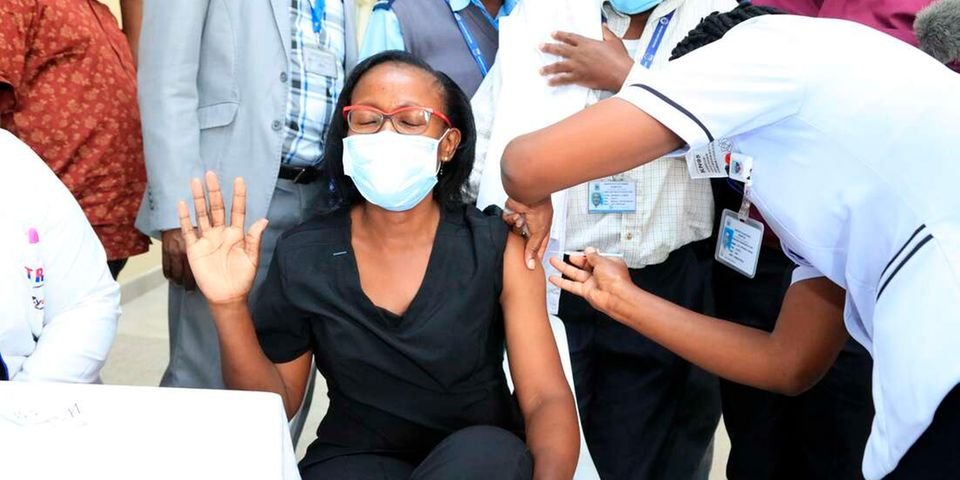Although COVID-19 has battered their economy, Kenyans look deeply divided over taking vaccine doses, mostly due to misinformation and trust deficit between the public and the government.
The Kenyan government laboured hard to secure 1.02 million doses of the Oxford-AstraZeneca vaccine. The country is expected to receive another 24 million doses within months. The government has begun vaccinating frontline health workers, teachers, and security personnel across the country.
But speaking to Anadolu Agency a majority of Kenyans in the capital Nairobi expressed skepticism as none of the government officials have been inoculated so far.
“I am not going to take the injection, none of our top government officials have taken the injection. They are just waiting for us to take it so that they can use us as experiments,” said Marcos Karanja who is dealing with sewerage maintenance.
He said like other countries, top leaders should take the jab first to lead by example. He said it looks that vaccines are being tested on poor men to learn about their side effects.
Joram Njuguna, 25, a student questioned the Health Ministry directive asking the vaccinated people to continue observing social distancing.
“Why are we told that after being vaccinated we should still maintain social distancing, wear masks, wash hands, and obey all other preventive measures. If I am vaccinated, I can’t get the disease…if I can’t get the disease, I can’t spread it, so why are we being told to still do this. Something is off about the vaccine, I wanted to take it but I will not,” he said.
But Beautician Rehema Awuor,28, said that she will get vaccinated because she does not want her parents to contract the disease.
“The only reason I want to get vaccinated is that my parents are very old and I stay with them. I want to protect them as they are mostly at home, if there is a silver lining that I may be able to save them then I will take the jab, “she said.
Emma Wanjiku, an accountant said there was a trust deficit between government and people.
Voluntary groups try to dispel fears
“I won't let them inject me or my kids. With our corrupt government, whatever they may inject us might not even be a vaccine, my husband is a medic and he has also cautioned us about this,” she said.
Janet Njeri a receptionist claimed to hear catholic doctors advising people to be careful.
“I wanted to take it but I will not, the stories you hear in the villages are even more absurd and scary,” she said.
Voluntary community health worker Ambrose Opiyo from the Mathare slums said that his organization is fighting vaccine skepticism.
“A majority of people I have spoken to here will not take the vaccine due to misconceptions. They feel the government is out to reduce the number of people who live in slums…if not by killing them, by making it so that they can’t reproduce,” he said.
Influence by politicians has also contributed to vaccine skepticism with many followings what their local leaders are urging them to do.
Stephen Karanja, a medical practitioner said it was criminal on the part of African leaders to test the vaccine on people. But another medical practitioner Ramadhan Marjan urged Kenyans to take the vaccine to save lives.
“As Muslim doctors and as people from the scientific community, we will say we have nothing against those vaccines,” he said.
Despite such reassuring words from doctors like Marjan, the number of Kenyans who are skeptical about taking the jabs is considerably high. By Andrew Wasike, Anadolu Agency











